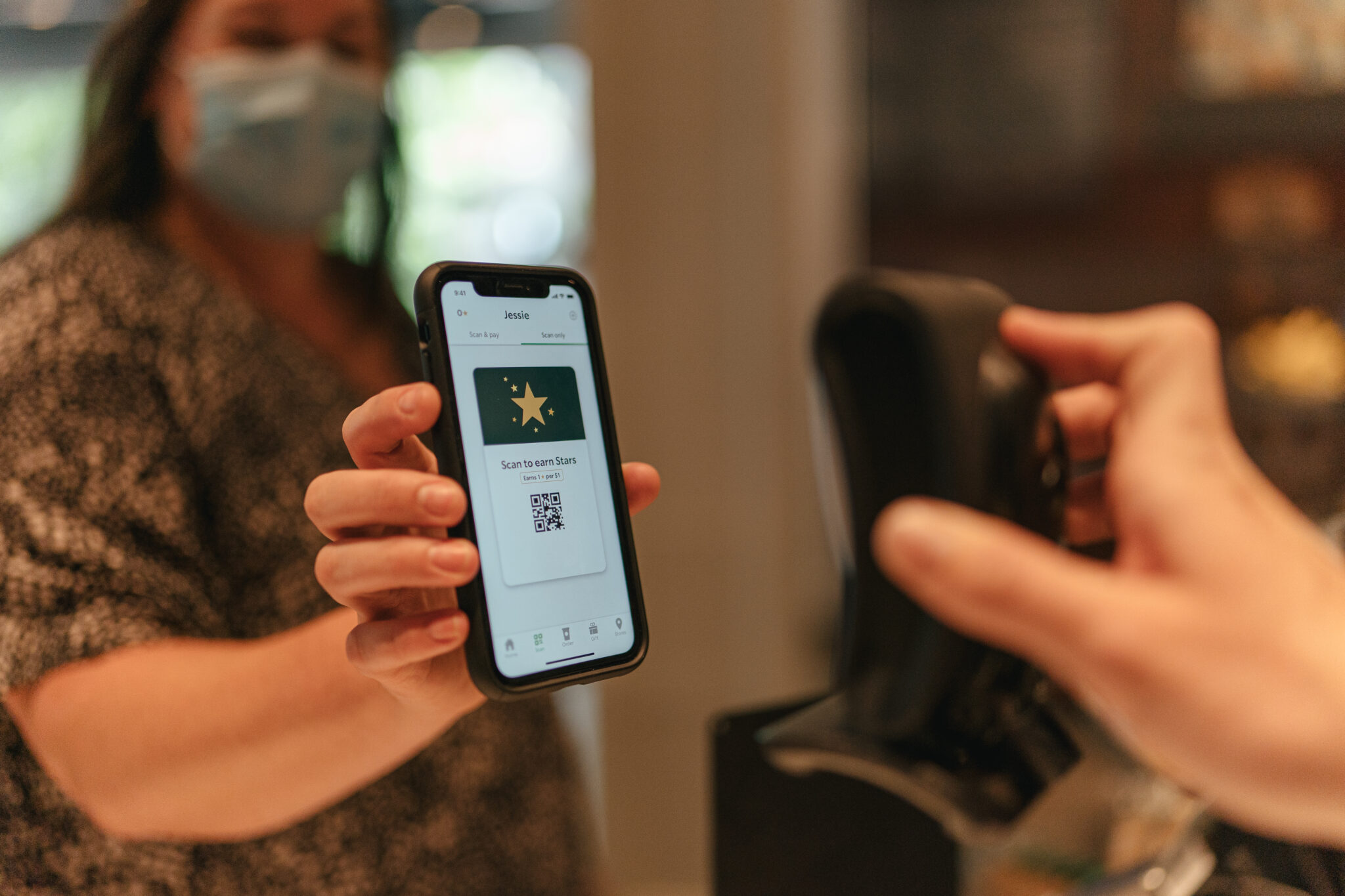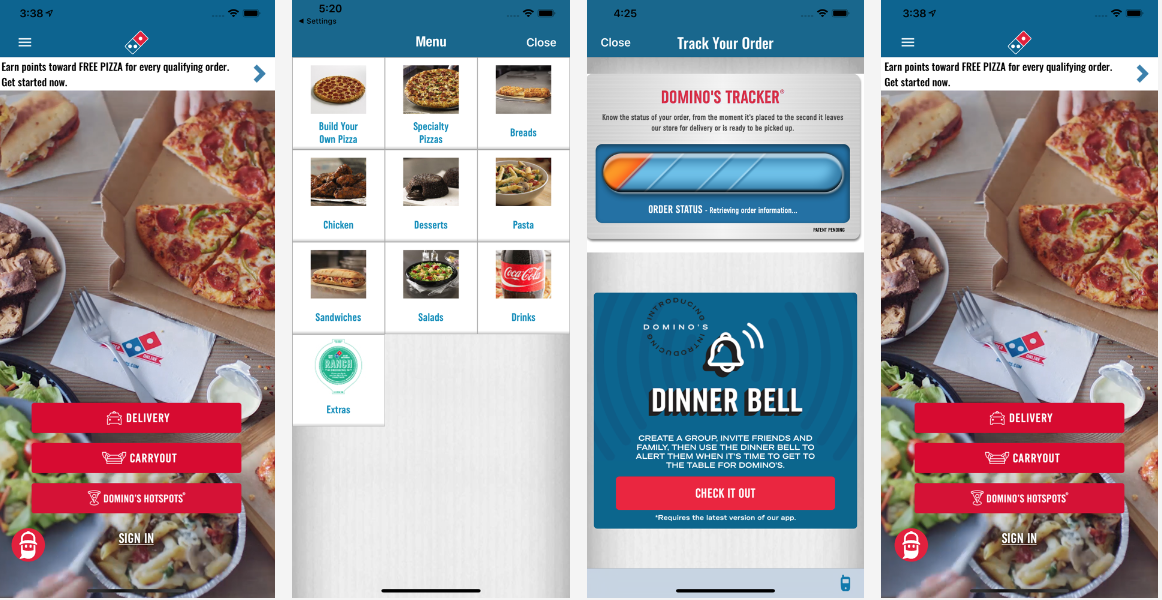Ever since businesses have realized the true potential of mobile apps, they have been keen to take advantage of them. And why would anyone ignore them, knowing that there are 6.648 billion smartphone users worldwide (i.e., 83.72% of the total population)? And it doesn’t end here. Estimates suggest that by the year 2026, the number of smartphone users will be more than 7.5 billion.
Now an average smartphone user has around 80 apps installed on their device, out of which they use ten daily. With so many people using so many apps, it would be silly of businesses not to enter this territory.
In this blog, we are going to see why mobile apps are important for business and what are some must-have features of a successful mobile app. Without further ado, let’s get into it.
7 Must Have Features in a User Friendly Mobile App
When you are developing an app, it can be very challenging to decide which features you should focus on first. There are, however, some must-have features for every app, irrespective of their niche. These include:
1. Security
Internet security is becoming one of the biggest global issues. And it’s one that you should seek to tackle first. No user will want to risk their data by installing an app that’s not secure. Most of the apps come with in-app purchases, or it’s a service they are selling, meaning there will be sensitive details like debit/credit card — security is something that you can’t compromise on.
Hackers across the world might try to:
- Penetrate the app with malware to access the data stored in the device or purloin the screen lock to get complete entry into the phone.
- Intrude on the data that’s consistently travelling through the network.
- Use the data of your customers and use it in a way they would not like.
These are some of the attacks that you can’t afford as an app owner. This makes app security one of your top priorities and not something that comes to you as an afterthought.
2. User-Friendly Design
As we have already mentioned above, there are 6.648 billion smartphone users in the world. And every smartphone comes with a different screen size, which makes it essential for your app to have an adaptive design.
Similarly, your design should also consider different operating systems. Both Android and iOS are constantly competing and have some differences in their designs. You must ensure that your design aligns with the overall interface of the device. Also, make sure that with the help of ui/ux design companies you can handle all the tasks regarding your user-friendly visibility.
Now, 61% of the app users claim that their favourite app is easy to use and navigate. So, a user-friendly design automatically becomes the crux of an excellent customer experience. To measure the effectiveness of design, you must consider leveraging usability testing tools as per customized requirements.
3. High-Quality Customer Support
What’s the secret to making your customers happy? Nine out of ten times, great customer service will do the job for you. According to HubSpot research, 93% of the customers like to do repeat business with companies that provide excellent customer service. Even after being such an integral aspect of the marketing industry, app developers don’t prioritize it enough.
Moreover, poor customer support means 52% of the users will delete the app and forget that it even existed. Good customer support guarantees customer satisfaction and ensures that these customers go the extra mile to leave a good review for your app. When you have a decent amount of good reviews for your app, it is bound to get more downloads.
Here are a few ways to provide high-quality customer support to your users:
- Ensure that your customers don’t have to leave the app to contact you.
- Reduce the number of support tickets and workload on employees by providing FAQs.
- Integrate automatic follow-up systems that will help you prioritize customers who still need help.
- The sooner you solve your customers’ issues, the more likely they are to leave a good review.
- When users want to cancel the subscription, make it hassle-free for them.
4. Speed
Another vital feature of a successful app is speed. No user likes to wait. Looking at an app’s loading screen can be particularly frustrating.. This makes these users switch to something else to use their time in a better way.
Before you officially launch your app, it’s essential to follow appropriate testing measures and processes to ensure that there’s no compromise with the speed of the app. Moreover, the speed should remain intact even after your launch of the updates.
5. Push Notification
At the end of the day, you want your users to keep using your app and bring sales to you. And it’s not going to happen if they forget to open your app. This makes push notifications one of the most important features of the app. It charms your users with catchy lines to open the app and perform some actions.
Push notifications are more convenient for users to see. And there’s no chance of it going to the spam folder like emails. It can be a combination of both graphics and text, which increases the range for engaging the users.
6. Offline Functionality
When you launch an app, you don’t want it to be entirely dependent on the internet for usage. If there’s no internet, the customer won’t be able to interact with your brand. This makes it essential to provide as much offline functionality as you can in your app.
Well, of course, you want it to be in balance with security and data-theft issues. Every individual carries their mobile phones wherever they go — in busy coffee shops, chock-a-block metros, etc. If the phone is stolen, loads of sensitive data are gone.
7. Battery Saving
You can fill your app with the world’s best features and functions, but if it drains the life out of the smartphone, users are going to run away from it. Irrespective of what your app does, it should not consume too much of the battery. You must opt for various measures to ensure that the app is battery efficient.
Importance of Mobile Apps for Businesses
A mobile app adds the X-factor to your business and makes it easier to retain and grow your customer base. Here are some of the benefits:
Build Customer Loyalty
Apps are far more interactive and easier to access quickly than traditional websites. And because mobile apps have to be present on the smartphone, they help brands build an instant relationship with customers and gain their loyalty.
For example, the star point reward system that Starbucks has adopted gives a star to customers whenever they make a purchase. And when customers have five such stars, they get various discounts and sometimes even a free drink. Loyalty programs like these are one of the major reasons why Starbucks enjoys a huge and loyal customer base. To increase customer loyalty, practice-proven strategies and start using appropriate customer loyalty software.

Enhance Your Accessibility
Obviously, mobile phones are easier to access. Everything a customer needs is just a click away. When customers feel secure purchasing and interacting with your brand, they are going to do it more often. And there a line that goes in business — the easier you are to reach, the more they’ll come to you.
If your app provides customers with an enjoyable experience, they are very likely to recommend it to others. This will boost your growth and will always keep you a step ahead of your competitors.
Helps to Build a Database of Prospects
When a customer downloads your app to purchase a product or service, you get an additional channel to fetch more details about them. If and once the user gives you permission to collect their data, you can use it for your other marketing channels.
As a business, this data can really help you in identifying what works for your customers and what doesn’t. The more data you have, the better your recommendations will be and the more you’ll be able to meet your customers’ expectations.
Helps Boost the Profits
You can’t be a pizza lover if you don’t know about Dominos. It is the leading American pizza restaurant chain that witnessed a 28% jump in first-half pre-tax profit. Did the number of people who love eating pizza increase so much in just six months?
No, this was mainly due to their app launch for online delivery and in-store pickups. This mobile app made things simpler for their customers, and this seamless customer service increased sales and profits. With an app that solves a problem and provides a better customer experience, businesses can increase their revenue significantly.

How Can a Mobile App Become Successful?
Other than the features that your mobile app provides, there are certain factors that play a key role in making your mobile app successful. Before you launch your mobile app, your fundamentals should be clear, and then you have to ensure that the performance doesn’t drop with time.
Here are some tips to make your mobile app successful.
Know Your Audience
First things first, you should understand your audience. No matter what you are planning to build, it will never be successful if you don’t know who is going to use it. Knowing your audience helps you determine if your app really has the potential to become successful. You’ll also know how you can market to these customers and on which channels.
Now how can one get to know your audience? Try checking stats and insights, keep an eye on trends, ask questions on forums, etc. We also recommend that you build an MVP first before going all in on the app.
Offer Value
Your app must solve a specific problem that many people (a targeted group) face. These people are going to be your potential customers. If we look at one of the most downloaded apps — Candy Crush, even it solves the problem of stress and boredom. When people are standing in queues or waiting for someone, this app offers an outlet for boredom.
The benefit should motivate the user enough to download the app and use it. You can stand out from the competitors by giving the same service at a lower price, transferring the information faster, providing additional services, etc. Your apps value should align well with your consumer needs, technology requirements, and business needs.
Define the Business Model
You can’t just wake up one day and decide that you will launch an app. You have to first analyze how this app can help you generate revenue. Most app developers go for the advertisement-based business model to monetize their apps. Some also go for the in-app purchases option. But these two are not the only options available. You should pick the one that goes best with your app and business.
You can also take a look at your competitors’ strategies. If a certain business model is working for them, more often than not, it’ll work for you too. It all boils down to one thing — is your app generating profits?
Choose the Right Technology
How you decide to build your mobile app plays a significant role in creating a path for success. If you don’t use the right technology, the app might not perform the way you expect it to. As an app owner, that’s the last thing you ever want. Here are three options you can choose from:
Platform-Specific Native App
Platform-Specific Native Apps are built for one particular device type — Android or iOS. Here the programming language is compatible with the hardware and OS of only the chosen device. However, when an app is built natively, it can leverage the hardware and functionality of the device to a larger extent which takes the user experience to the next level.
Cross-Platform Native App
This type of app development uses shared SDKs (Software Development Kits), but the end product still runs natively. Flutter and React Native are two of the most common technologies used to create a Cross-Platform Native App. Here, you do lose out on some of the native advantages. But this is the approach to go with if you are on a limited budget.
Hybrid App
When an app is developed via a Hybrid approach, it becomes compatible with all types of devices and OS. It is also one of the most popular approaches because of its cost-effectiveness, rapid deployability, and portability. However, there’s a compromise with user experience because you can’t leverage much of the device’s native components and interaction patterns.
Short Sum Up
Mobile apps have played one of the biggest parts in the digital revolution. By launching an app, businesses can increase their growth opportunities. But don’t launch an app for the sake of launching an app. If you are launching it, ensure that it is equipped with the right technology and features.




